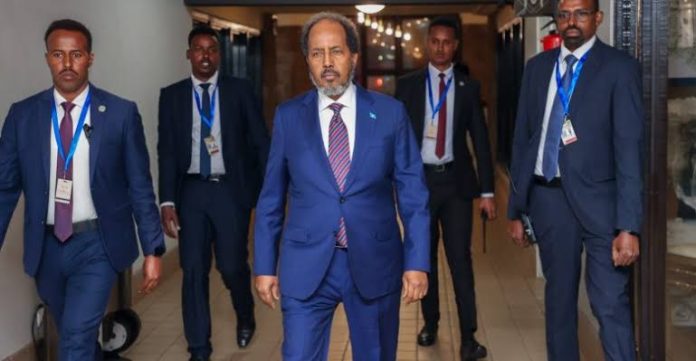Facebook Twitter (X) Instagram Somali Magazine - People's Magazine
Somalia has accused Ethiopia of inciting conflict in the southern Jubaland region, marking another flashpoint in the deteriorating relationship between the two neighbors. The Somali government alleges that Ethiopian forces attempted to advance into the Bulohawo district of the Gedo region, a move reportedly repelled by local communities and Somali armed forces.
In a statement released by Somalia’s Ministry of Information, Culture, and Tourism, the government condemned Ethiopia’s actions, accusing Addis Ababa of undermining Somalia’s sovereignty and unity. “The Somali government strongly condemns the damning acts of the Ethiopian government in Gedo, which aim to provoke conflict among local clans,” the statement read.
Background of the Dispute
Relations between Somalia and Ethiopia have soured since January 2024, following Ethiopia’s controversial port deal with Somaliland, a self-declared independent region of Somalia. The agreement, which has not been officially confirmed by Addis Ababa, reportedly included leasing coastal land for port development and a military base in exchange for Somaliland’s recognition.
The Somali federal government in Mogadishu views the deal as an affront to its sovereignty, given its longstanding opposition to Somaliland’s independence claims. This dispute is set against the backdrop of Somalia’s complex political landscape, with its federal structure comprising five semi-autonomous states: Jubaland, Puntland, Galmudug, Hirshabelle, and South West.
Jubaland Leadership and Central Government Tensions
Jubaland’s re-election of Ahmed Madobe, a former warlord, as its president has further strained relations between the region and Somalia’s central government. Mogadishu opposed Madobe’s re-election, preferring a leadership aligned with its vision for the upcoming nationwide elections. This internal discord has created fertile ground for external actors to exploit local grievances.
Ethiopia’s Alleged Role in Gedo
The Somali government alleges that Ethiopia’s actions in Gedo are part of a broader strategy to destabilize the region. According to Somalia’s Ministry of Information, Ethiopian forces sought to stoke clan-based rivalries to weaken local resistance. However, Somali armed forces and local communities reportedly thwarted the incursion.
“This interference by the Addis Ababa administration threatens to create fresh conflicts and disrupt regional stability,” Somalia’s statement warned. The government also called on the international community to denounce Ethiopia’s actions and support Somalia’s sovereignty.
Ethiopia’s Silence on the Accusations
As of now, Ethiopia has not issued a formal response to Somalia’s accusations. The lack of comment leaves room for speculation regarding Ethiopia’s intentions and its long-term strategy in the region. However, Addis Ababa’s reported ambitions to secure access to the sea through strategic partnerships suggest a broader geopolitical play.
The Strategic Importance of Jubaland and Gedo
Jubaland, and by extension the Gedo region, holds significant strategic importance for Somalia and neighboring Ethiopia. The area serves as a gateway to Kenya and controls access to key trade routes. Any instability in this region could have far-reaching implications for regional security and economic development.
Somalia’s Stand on Independence and Sovereignty
Somalia has vowed to defend its independence and sovereignty against what it perceives as external aggression. “We are open to peaceful coexistence,” the Somali government stated, “but we are prepared to safeguard our territorial integrity at all costs.”
Implications for Regional Stability
The ongoing tensions between Somalia and Ethiopia risk exacerbating existing instability in the Horn of Africa, a region already grappling with conflicts, economic challenges, and climate-induced crises. The international community’s role in mediating these disputes will be crucial in preventing further escalation.

